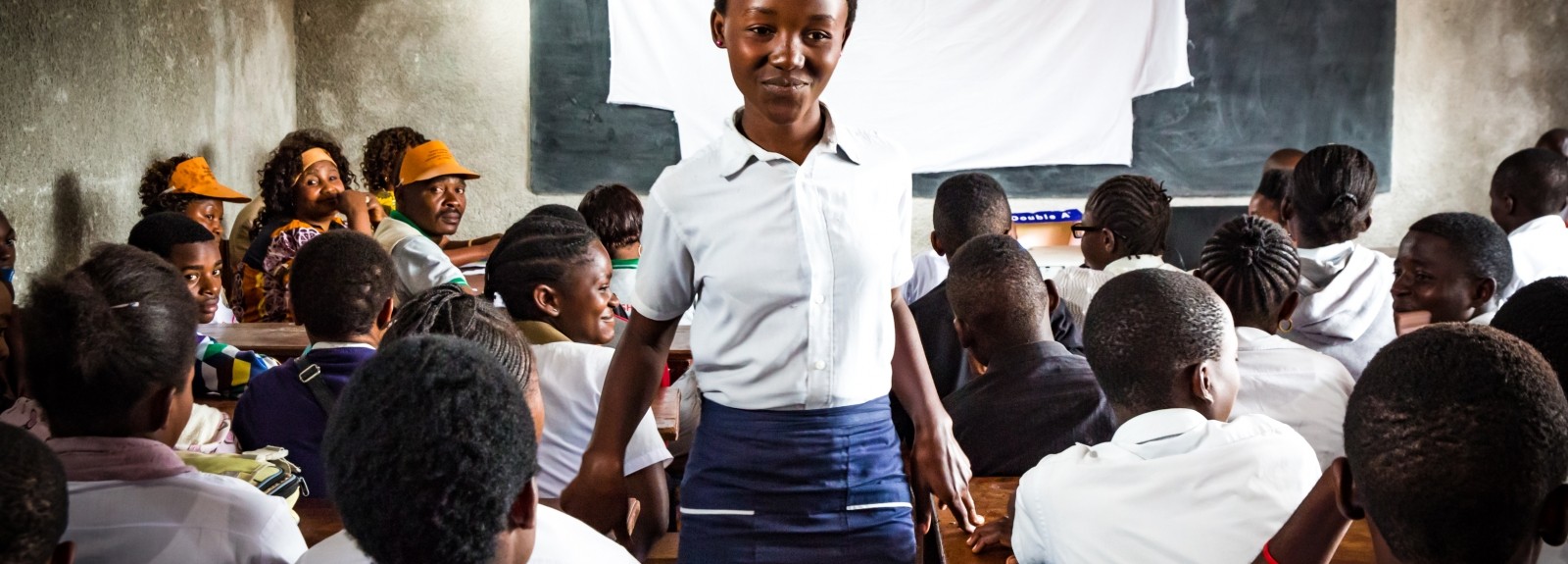It is a hot summer day and the air is thick in this crowded room. I’m the only woman here. I’m in a court room in Islamabad, Pakistan, and I’m trying to get permission to sell my own land. Yes, that’s right - I need permission to sell land that I inherited from my father, that is registered in my name.
I keep thinking, Why do I need permission to sell something that already belongs to me? My thoughts are disturbed when my name is called. I get up and walk to the judge’s bench as the eyes of more than two dozen men follow me.
I clear my throat and explain my application to the judge, a young man more than fifteen years my junior. He listens impatiently and, as soon I finish, says, “Are you alone? Is there a man accompanying you? Where is your father, brother or husband?”
I tell him that I am an independent working woman and that I don’t need the company of men to complete my tasks. He responds, “I understand, but how can I allow you to sell land when no man in your family knows about it. Don’t get me wrong, I am only trying to protect you. This is a man’s world. Someone may try to trick you into selling your property. You should be advised by the men of your family in such matters. At the next hearing, bring someone from your family with you so that I am sure that your family knows what you are doing. Do not create any problems.”
With that, he waves his hand and dismisses me from his presence and begins proceedings on the next case. I watch him aghast for some time and then slowly walk out, knowing that I will have to do what he says.
At the next hearing, I bring my older sister, a university professor, with me. She assures him that I can make my own decisions and that my family has no objections to me selling the land. The young judge does not seem convinced as there is still no man testifying on my behalf. Begrudgingly, he allows me to sell the plot, which is legally mine.
The following week, I finally sell my land and pay the tuition fees for my son’s study abroad program.
It’s time to break the bias
This was neither the first time nor the last time that I had to endure bias of this kind in a public space. Hundreds of millions of women face these biases across the globe every day, every hour and every minute. Too often, we are denied basic human rights as women, forcing us to lose opportunities and assets that are rightfully ours.
Gender biases manifest across health and education systems, in workplaces and in markets, in urban metropolises and rural fields. These biases accumulate and unleash a chain effect, impacting the lives of women even before they are born. Such biases also result in the devastating truth that one in three women faces gender-based violence throughout the world.
It is important to break the bias if we want to save lives, improve health care, strengthen livelihoods, reduce poverty and create a just world for all.
International Women’s Day
In honoring International Women’s Day, I want to challenge you all to imagine a world that is diverse, equitable and inclusive. Throughout my life and work, I have seen how women and girls are powerful agents of change, catalysts of social and economic impact.
As the Senior Technical Advisor for Gender-Based Violence at Corus International, I am proud to be an advocate for women, defying discrimination and stereotypes. By engaging all genders in health service delivery and in innovative social and behavior change programs, organizations in the Corus International family are actively promoting women’s voices in public spheres. With increased access to sexual and reproductive health information, financial services and enterprise development, livelihoods are improving, and communities are more resilient.
Let’s create a world where there will always be space for women, where all genders are valued.
I sold my land. I will continue to break the bias. Will you join me?
---
Noshaba Zafar is Corus International's Senior Technical Advisor for Gender-Based Violence.

